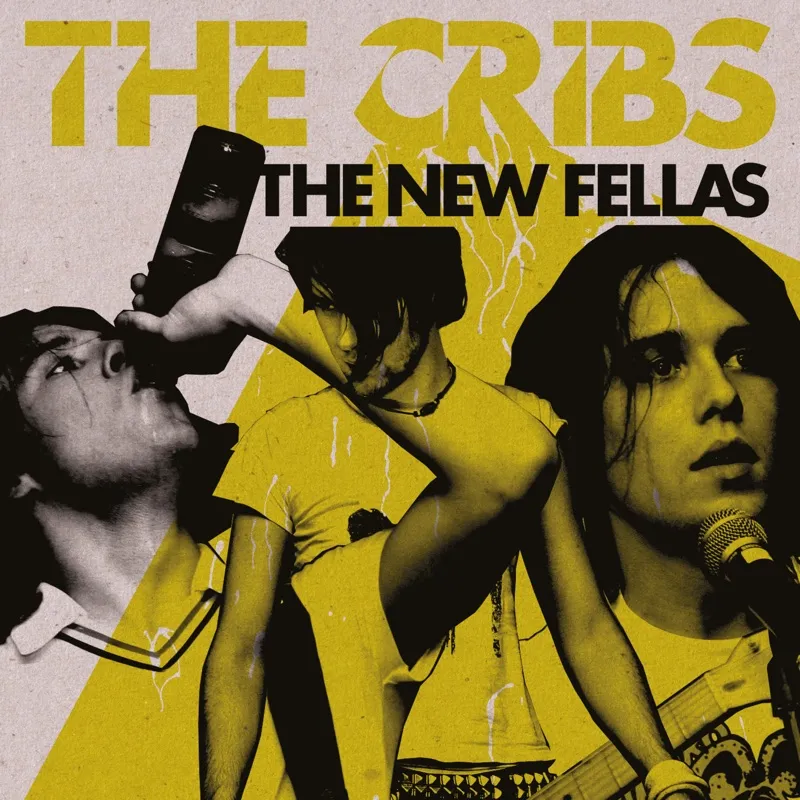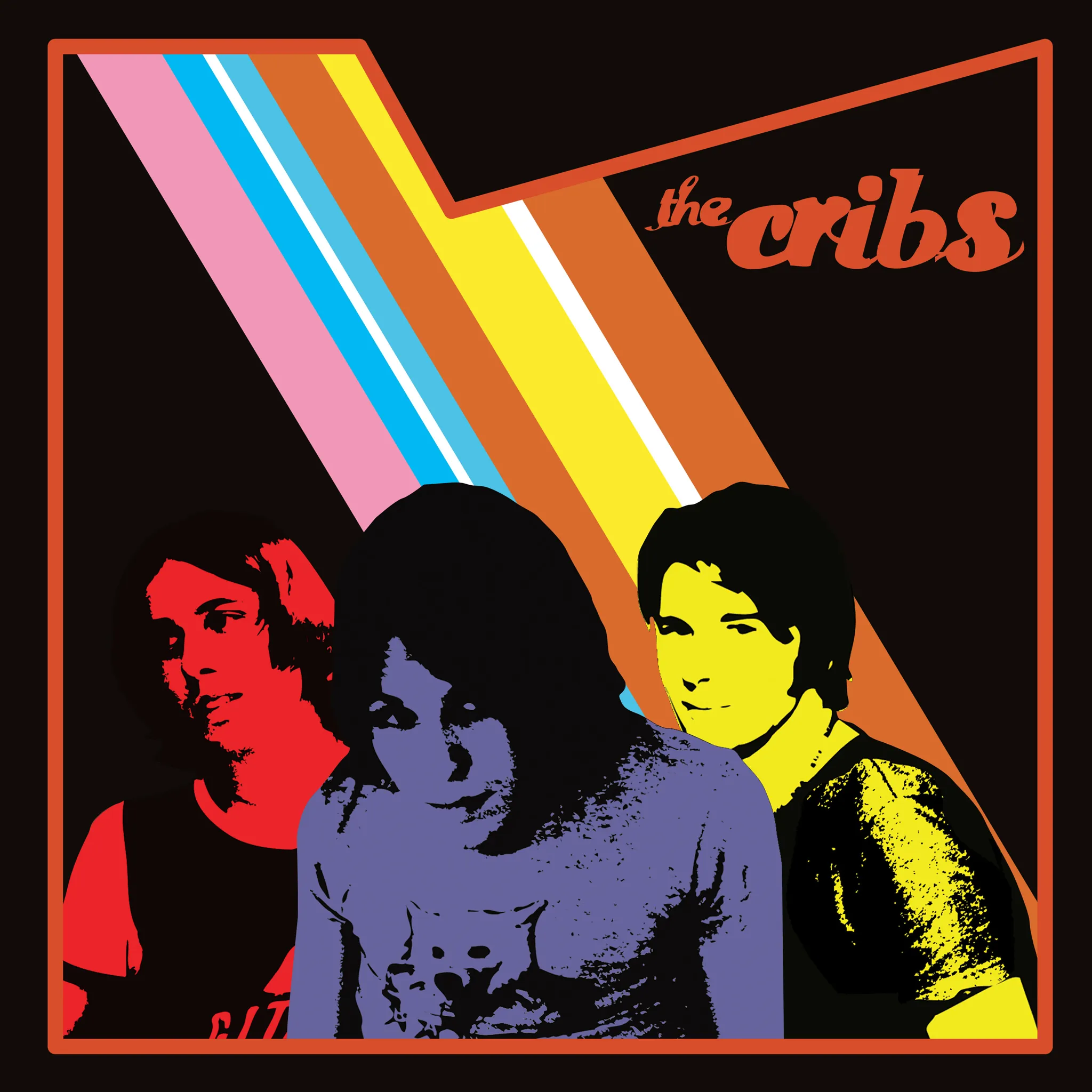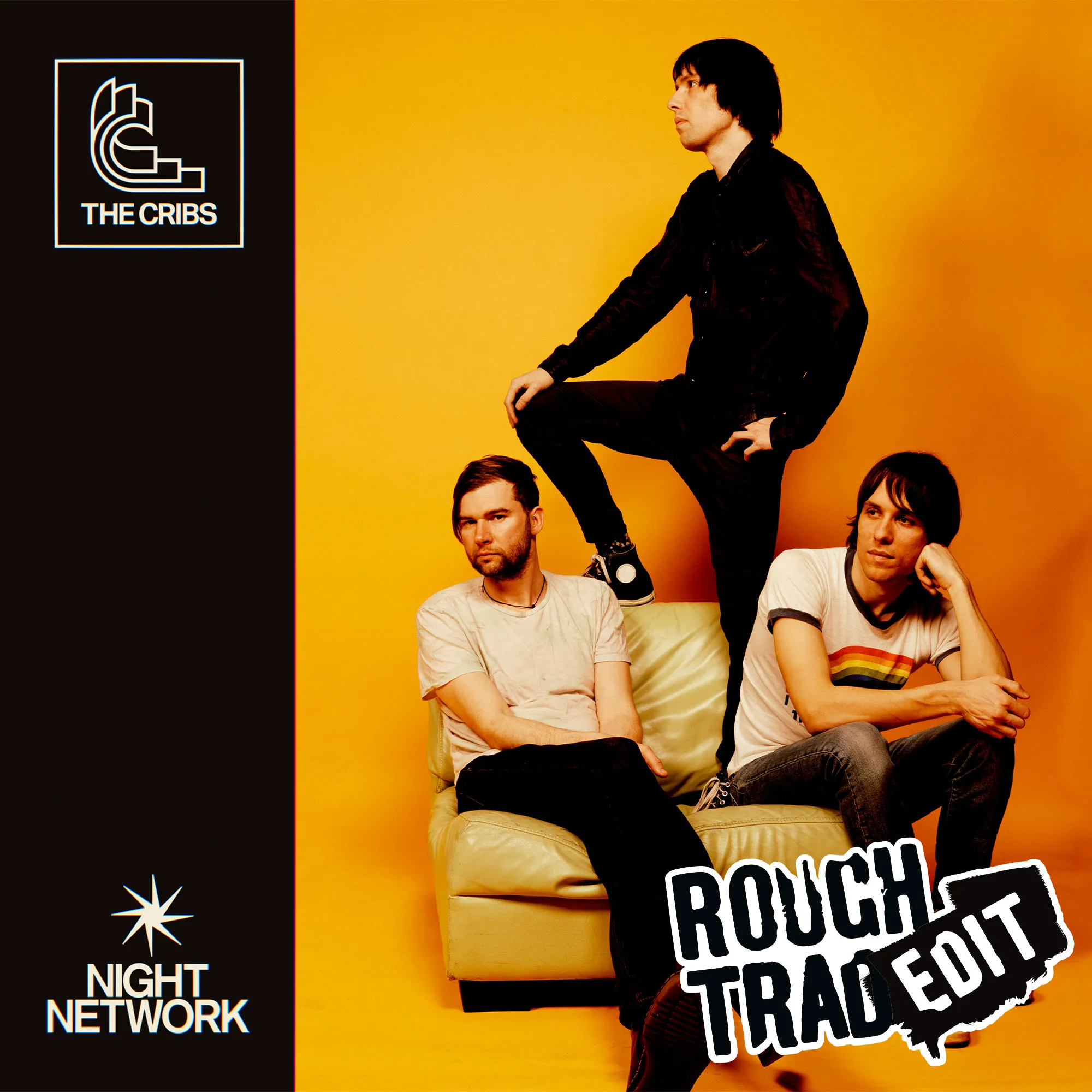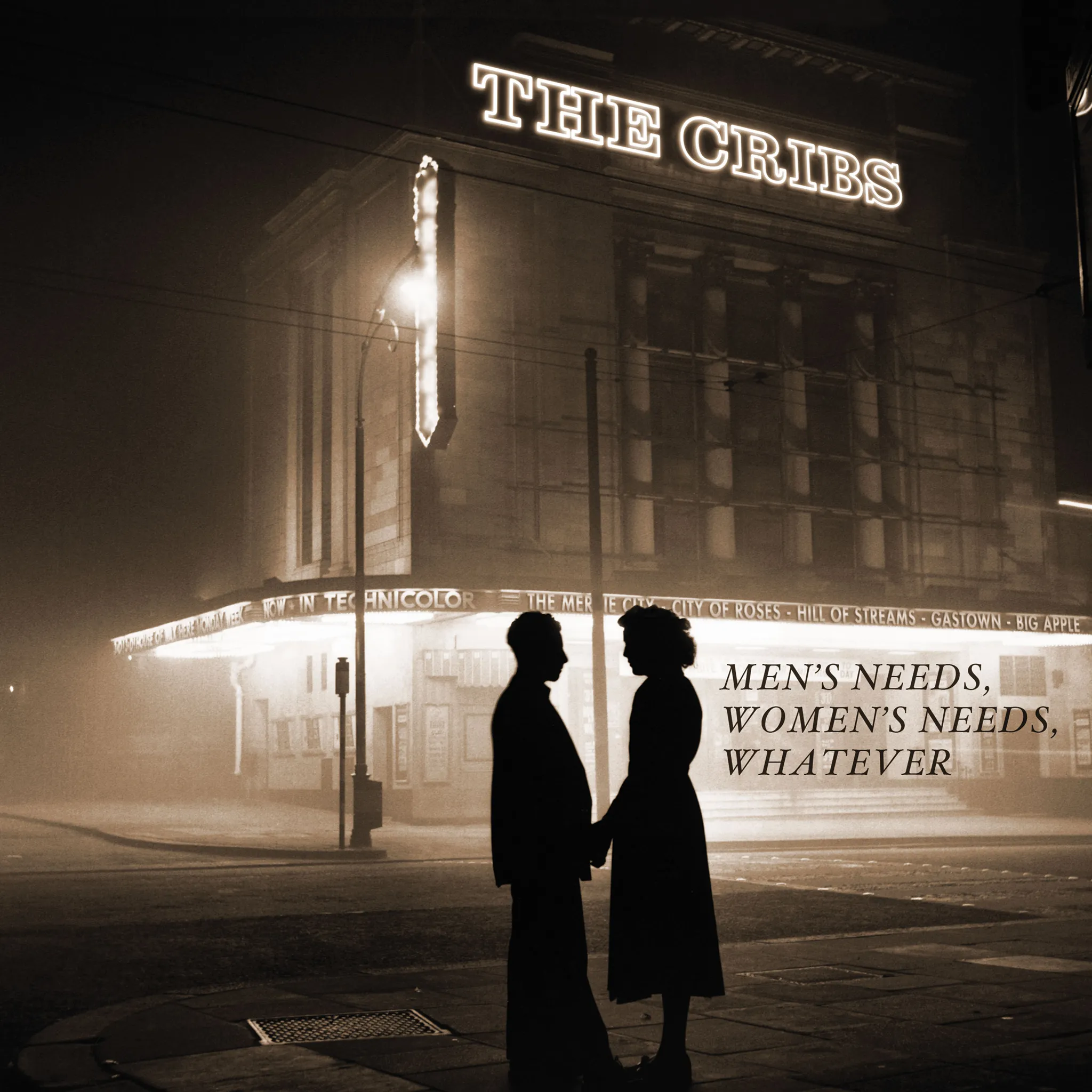Interview “We didn’t feel like rock stars, even if we were living that way” - The Cribs on ten years of ‘The New Fellas’
Gary, Ross and Ryan dig into their photo albums, and look back a decade to their iconic 2005 record.
In Washington D.C, thousands of miles and ten years apart from where it all came together, Gary Jarman is looking back on ‘The New Fellas’; specifically, a brush with the charts that, to him, summed up that period of his band’s life. ““We were in mainland Europe somewhere, and I got a phone call. ‘Hey Scenesters!’ had just come out, and it was our manager on the line, telling us that it was at number nine in the midweek charts. Instead of being happy about it, I remember this overwhelming sense of frustration and vindication, both at the same time. Everybody seemed to be preparing us for it to fail; nobody had expected it might succeed. It was almost like a negative feeling. I got off the phone, and my brothers thought something bad had happened. We’d put out this single that was uncompromising, not very commercial, and now people were making arrangements for us to fly home in time to be on Top of the Pops.”
Fate was to intervene, though; in a perverse twist, that was the same week, in April 2005, that legal downloads were counted towards the singles chart for the first time. The Cribs’ management hadn’t seen the implications of that move, which now seem thumpingly obvious, coming. “We’d been assured that it might only make five or ten percent difference,” sighs Gary, “but, somehow, nobody had realised that downloads were going to be like an atomic bomb as far as the charts were concerned.” In the end, the single went in at 27. “That was ‘The New Fellas’. Highs and lows. Making plans for Top of the Pops one minute, and then ending the week feeling like we’d been screwed again.”
A decade on, it remains the quintessential Cribs record. If anything, it sounds even more vital now than it did in 2005; bursting at the seams with the feral energy that has defined the band’s live shows for so long and scored through with a visceral anger. This is the album that their hardcore followers hold dearest - it plays like a mission statement, brimming with purpose. In ‘Hey Scenesters!’, ‘Mirror Kissers’ and ‘Martell’, it boasts three of the best-loved British indie singles since the turn of the century. Above all - and unlike so many of the records turned out by both the trio’s contemporaries and the bands they inspired - it is totally, irrevocably authentic, an exercise in ramshackle charm that proved the perfect riposte to the posers and phonies that so many of its songs decry.
Ten years doesn’t sound like a particularly long time, but 'The New Fellas' was released at a point when the ubiquity of the internet hadn’t quite taken hold; social media was in its infancy, the age of the thinkpiece was some way off, and online had yet to truly overtake print as the music press’ medium of choice. Accordingly, before Gary, Ryan and Ross took time out from last month’s U.S. tour to look back on it with DIY, it still felt as if the true story of the record had yet to be told. To the casual ear, it’d be tempting to place both 'The New Fellas' and its full-length predecessor, the group’s self-titled debut, in the same bracket; they were both rough and ready, considerably less polished than the albums that would follow them. In actual fact, though, there’s plenty to separate the two.
'The Cribs' was recorded at Toe-Rag Studios in Hackney in 2003; it was a perfect fit for a band who had cut their teeth in DIY fashion back in their native Wakefield, home-recording their early demos. Toe-Rag was an eight-track analog studio at a time when that had yet to come back into fashion - as Ross puts it, “I love The Beatles, so to me, that was the ultimate. It was the only way I ever wanted to make records.” As eager as the Jarmans were to return to Toe-Rag for album number two, though, Wichita - their label - had other ideas.
“I think they were trying to find a way to ease us into making a bigger-sounding record, basically,” Gary recalls. “We were pretty averse to that at the time, and we definitely weren’t into the idea of going into a big studio. That was at a time when indie bands were starting to have these successful crossovers onto radio, and Wichita were trying to coerce us into maybe doing something that would stand up a little bit more in that respect. We were staunchly against it, to begin with.”
Ross had even stronger feelings on the matter. “I felt like Toe-Rag was the ideal blueprint for us, and I was wary about doing anything that would end up too polished or overproduced. I remember listening to ‘Hey Scenesters!’ for the first time and thinking, “this isn’t right. This isn’t what my original idea of the band was.” It’s a bit ridiculous now, because obviously it isn’t overproduced at all; it’s really raw, and I remember the a lot of the reviews, when it came out, saying that it sounded like we’d recorded it in a tin can. Even then, I was still telling people that they should listen to the first album rather than the new one - at the time, I really felt like that better represented what I wanted us to sound like.”
Something - or rather, someone - was going to have to bridge the gap between the group’s bullish stance on straying from their lo-fi roots and Wichita’s desire to exploit their obvious pop potential. A list of possible producers was drawn up; “the first idea was to go to Ireland and record with somebody from The Undertones, either the bassist or the drummer,” as Gary tells it. Among the names floated was Edwyn Collins, the former Orange Juice frontman who’s conducted his career with the same kind of unwavering punk ethos that The Cribs themselves have made their trademark. “Looking back, that was one of Wichita’s really great ideas,” says Gary. “They understood that we were suspicious - even a little bit pessimistic - about the industry, and that we needed somebody who could coax a record with wider appeal out of us. Edwyn was the perfect foil. He acted less as a producer and more as a mentor, really. I remember going to meet him for the first time and booking the studio there and then.”
"The lyrics and the angry spirit of the album kind of came out of the fact that we were always awkward in London - we always felt like the misfits"
— Ryan Jarman
Perhaps inevitably, though, the process of laying down the tracks for 'The New Fellas' didn’t end up panning out in simple fashion. The band have long been known for ferocious touring schedules, and they practically lived on the road once 'The Cribs' was released. “We were these three scruffy guys with really fucked instruments, just totally living to play in those days,” says Ross. “If you look back at photos from that period, we’ve all got really long hair - we couldn’t afford to get it cut. We shared the one bank account and didn’t really live anywhere; we went back and stayed with our parents when there was a quick break between tours.”
They might have gone on like that forever if they didn’t have a record deal to fulfill, and the task Wichita faced in keeping them away from the stage for long enough to turn out another album must, you’d imagine, have been an unenviable one. Still, the point came, according to Ryan, at which the label began to exert the necessary pressure to force the band off tour and into Collins’ West Hampstead studio. “We were on tour in Japan - the first album did really well over there - and our management heard us playing a little bit of ‘Hey Scenesters!’ in soundcheck.”
“They got excited and kind of rushed us straight into meeting Edwyn as soon as we got home, and we were saying, “you do realise we haven’t got anything else finished, don’t you?” There was a lot of uncertainty about how it was going to go, about whether we were going to be able to come out with anything we could use. We hadn’t really been writing. Wichita basically took us off the road; they weren’t going to bankroll us to tour any more, and they told us we needed to go away for a little to bit and come up with some ideas.”
The trio still managed to cut “three or four” new songs with Collins at West Heath during that first session in September of 2004, and then decamped afterwards to their rehearsal space in Wakefield - Springtime Studios, which, as Ryan describes it, was “kind of a dump, in reality. It’s in an old cotton mill, this really ancient building where you could see mice running along the tops of the walls at five in the morning. It was depressing in some ways, and super exciting in others. We were spending all day and all night writing and recording, sleeping down there, and just doing everything we could to get enough together for the next session with Edwyn. We were under the gun a bit, really, but I think it brought out a really creative side in us. It was hectic, but it worked, because we were going down to London and then coming back to Wakefield with all these new experiences to feed off of.”
The Jarmans returned to West Heath Yard in November with enough new ideas to be able to notch up another four songs for the record, and by this time, some clear and consistent themes were beginning to emerge lyrically. The first Cribs record didn’t really have an agenda - there was no overarching theme. There were quite a few love songs on there - the band were listening to a lot of A Hard Day’s Night at the time - and whilst there were flickers, here and there, of the fierce personal politics that would come to define subsequent Cribs LPs, there was nothing to suggest that such a fiery, cynical outlook would come bubbling to the surface quite so violently on 'The New Fellas'. Instead, the lyrics on 'The Cribs' mainly aimed for a sense of innocence and universality.
"If you look back at photos from that period, we’ve all got really long hair - we couldn’t afford to get it cut."
— Ross Jarman
Until music had given them a reason to broaden their geographical horizons, though, the three had pretty much lived their entire lives in Wakefield - they’d never been to London before they first went down there on band duty. The two hundred miles down the M1 might as well have been light years, with the sheer vibrancy of the capital providing a stark counterpoint to what these small town kids had been used to in a sleepy corner of West Yorkshire. Talking to The Guardian in 2013, Ryan mentioned that they’d pursued an “extreme lifestyle” during the making of 'The New Fellas', “because we were enjoying being in a band.”
“We just saw everything as an opportunity,” he explains. “We were in London every night, so we were going out all the time. There’d be days and days where no work was getting done; you’d be out all night and coming into the studio with no sleep, so you’d just be nodding off at the back of the studio and having Edwyn come and wake you up to record your parts. Him and Bernard Butler have all these stories now about that time, that they’d come in every day and see us lying around in the studio, hungover, eating a bucket of fried chicken, and just wonder, “how are these guys still alive?” We didn’t realise it was peculiar. We were just young and having fun.”
“That fried chicken thing says a lot, actually,” adds Ross. “We were really untravelled at that point. We didn’t even know what pesto was. There was a certain lifestyle that London offered that seemed exciting, but it was also fucking weird to be going down there and be suddenly lumped in by all these people as being part of some kind of London scene, which obviously we weren’t. A lot of it left us feeling very alienated. We didn’t really fit in with a lot of what was going on there.”
This would prove to be the bedrock of the record’s overall theme; a disdain for posers, a distrust of dedicated followers of fashion and a quiet discomfort with the manner in which the band were being misunderstood and misrepresented had gradually given way to resentment and, eventually, an incensed rejection of the falseness of so many of the people who suddenly seemed to be surrounding them. That anger, ultimately, would become the album’s lifeblood. “I remember the show when ‘Hey Scenesters!’ first came about,” relates Ross. “It was at The Windmill in Brixton, I think, and there were loads of people there with weird haircuts. It was obviously a hipster thing - people knew we were the cool gig to go and see, or whatever, and none of them actually cared about us. It was an impromptu thing, this sort of shouty back and forth between Gary and Ry, and it was just born out of frustration with these people turning up at the show because they wanted to be seen there. There was nothing genuine about them.”
“We were really untravelled at that point. We didn’t even know what pesto was."
— Ross Jarman
After spending January holed up back at Springtime, the band headed back to London in February of 2005 to round off the record; at this juncture, the sense of disillusionment was becoming abundantly clear. ‘Mirror Kissers’ was railing against hipster condescension and self-satisfaction. ‘I’m Alright Me’ nails its colours to the mast with the snarling, sarcastic refrain of “take drugs, don’t eat, have contempt for those you meet” - a line that almost didn’t make the cut under pressure from label and management, only for Collins to dig his heels in and insist on its inclusion. Even the myriad B-sides that were produced for the album were in the same thematic vein; “fashionistas! We don’t need you!” screeches Gary towards the end of ‘Advice from a Roving Artist’.
Increasingly, though, it was also becoming apparent that London was far from the only culprit. ‘Martell’ and ‘The Wrong Way to Be’ were making specific lyrical references that landed much closer to home; on the latter, Gary talks of “clued-up arseholes trying to set us and Wakefield at war.” The Cribs never were a Leeds band, but the city’s proximity to their hometown - as well as the fact that they cut their teeth there, at the legendary Brudenell Social Club - meant that the music press had begun to mislabel them as such, to the chagrin of some of the locals.
“We always found that strange,” Ryan explains. “We heard a lot of negative things said about us from people within that scene, about the fact that we weren’t very professional; I think a lot of people felt like it should’ve been their mates that got signed instead. There was a backlash in Leeds, and it meant we didn’t feel very comfortable there; it seemed to add a lot of weight to the gigs we played there, because we’d been getting so much stick. I think we were just an easy target for other people to take their own frustrations out on. At the time, we felt like we didn’t really fit anywhere; certainly not London, and certainly not Leeds. We were probably most comfortable when we were on tour, when we were leaving for somewhere new every morning. I think we preferred just being transient.”
On paper, it doesn’t really stack up that 'The New Fellas' should be the record that means the most to the diehards amongst the band’s fanbase; in thematic terms, at least, you’d expect the exploration of gender politics on 'Men’s Needs, Women’s Needs, Whatever' or the opposition to bigotry that 'Ignore the Ignorant' provided to be more relatable to those outside of the group than pinpoint nods to a section of the Leeds and London music communities circa 2004.
“A lot are the references on the record are very direct,” says Ryan, “but I think the feelings behind them were something that the people who were listening to it felt they could tune into. We might have been in London, going to a lot of ‘cool nights’, or whatever, but we didn’t feel like rock stars. We might have been living like it, but we certainly didn’t feel like it. The lyrics and the angry spirit of the album kind of came out of the fact that we were always awkward in London - we always felt like the misfits, and that’s the thing people relate to, I think.”
It helped that the group offered their followers a rare level of accessibility around that time, too. “After it got to the point where Wichita told us we had to stop touring so we could get on with the writing, we were always popping up on message boards and saying, “pay for our petrol and a crate of beer and we’ll come and play a show,” Gary recalls. “We had a lot of direct interaction with the people who were really passionate about the band that way; I think they appreciated that we were so willing to just jump in the van and drive to their small town, wherever it was. It seemed to help foster a real devotion, and we always tried to sort of cater to that. A lot of people heard the first album through filesharing, but there was a hardcore that wanted to track down every single and seven-inch, so we ended up writing at least an album’s worth of B-sides for 'The New Fellas'. It does seem to be the album that the diehards view as the best one, and I think it’s partly because they felt like these were their songs - it was the first record we made since those people had actually gotten into the band in the first place.”
Ten years on, The Cribs are about as close as you can get to national treasure status within the world of British indie, and if it was Men’s Needs... that cemented that position, there’s no question that 'The New Fellas' placed them firmly on the map. They’ve made huge strides since then; they’ve turned a hero of theirs, in Johnny Marr, into one of their own, produced a work of staggering rock and roll ambition with In the Belly of the Brazen Bull, and put their unique spin on the sounds of their pop influences on For All My Sisters. 'The New Fellas', though, still feels like a standout, its vitality unwithered by the passing of time, and the tenacity of its punk spirit still very much at the core of what the band are all about. “I listened to it recently on a train, on headphones,” admits Ryan, “and I still love it. It’s like an album on amphetamines; it just bangs through the songs so quickly, and you can really hear our character at the time. It actually sounds like all those late nights, and all those days in the studio half-asleep. It sums up that entire couple of years to me. I wouldn’t change a thing about it.”
“It completely captures the energy and the attitude we had back then,” adds Gary. “For me, those songs are the hardest ones to play. I was so angry when I wrote them. We all were. I can play something like ‘I’ve Tried Everything’ or ‘You Were Always the One’ so easily, and really enjoy it, whereas if we bring stuff in from 'The New Fellas', I almost feel like, if I’m not wound up and really feeling it, then it’s a poor performance of that song. There’s nothing else that we’ve done that I feel that reverential about, you know? That’s not me saying they’re my favourite songs we’ve done, because they’re not, but the way we felt at the time was a really pure thing, and I don’t want to do it a disservice. There was a really passionate spirit behind that record. I think that’s why it’s endured.”
Photos courtesy of The Cribs
For DIY’s full Hall of Fame coverage on The Cribs' 'The New Fellas' head here.
Read More
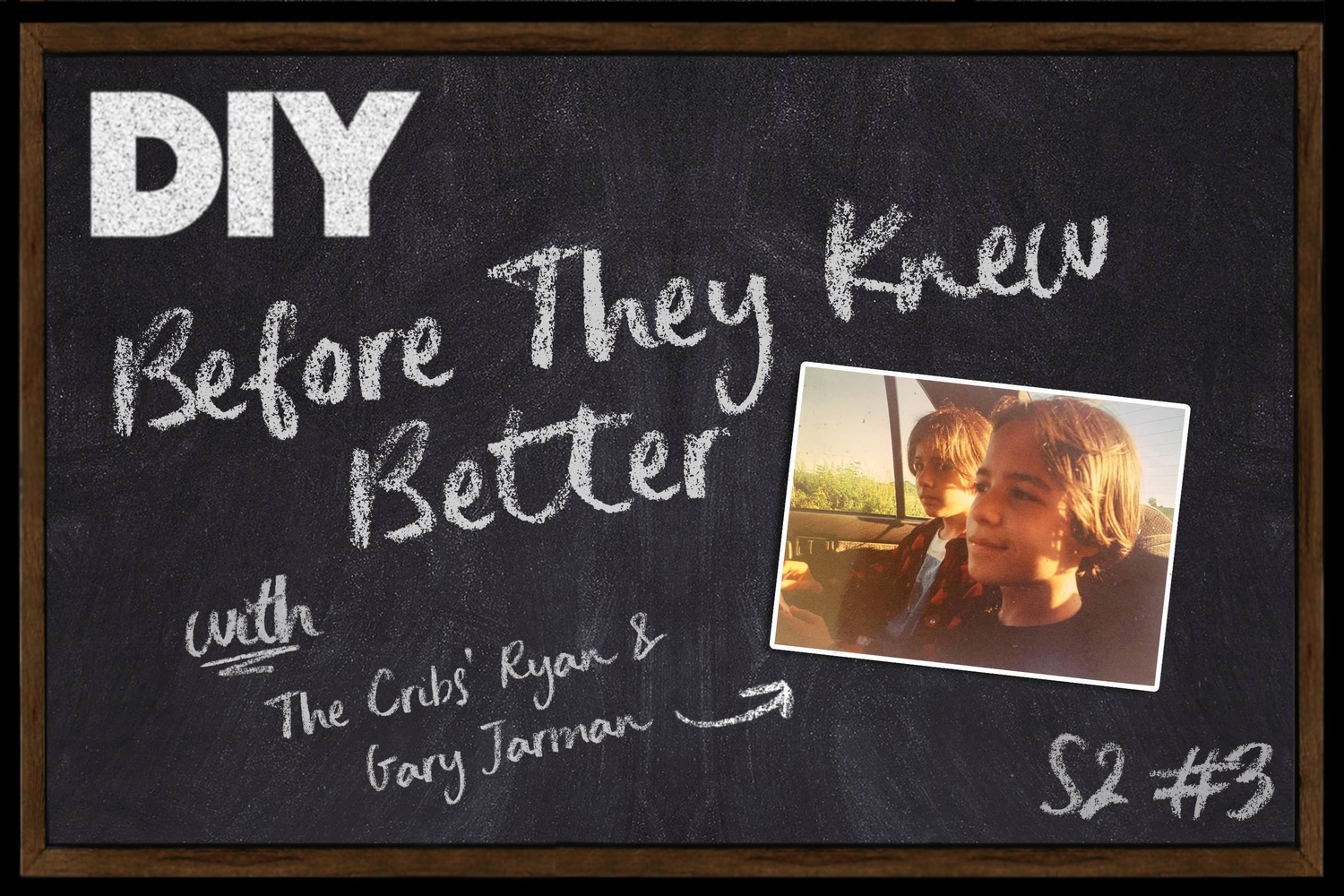
Before They Knew Better welcomes The Cribs’ Ryan and Gary Jarman
It's the first episode to have featured two guests, not to mention siblings!
16th April 2024, 10:00am
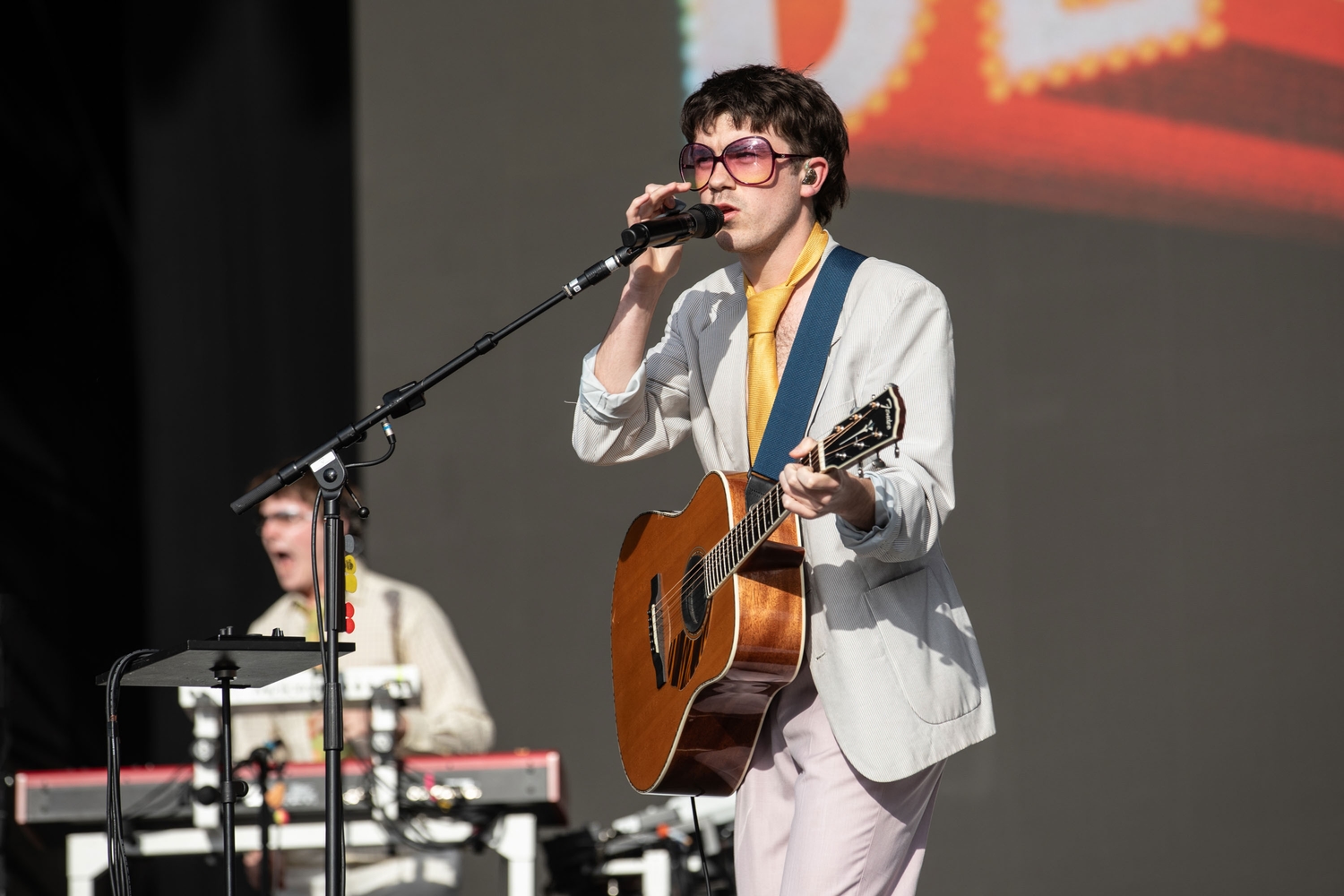
Declan McKenna, The Cribs, Future Islands and more to play Live At Leeds In The Park 2024
The outdoor festival will return to Temple Newsam Park next May.
23rd November 2023, 2:52pm
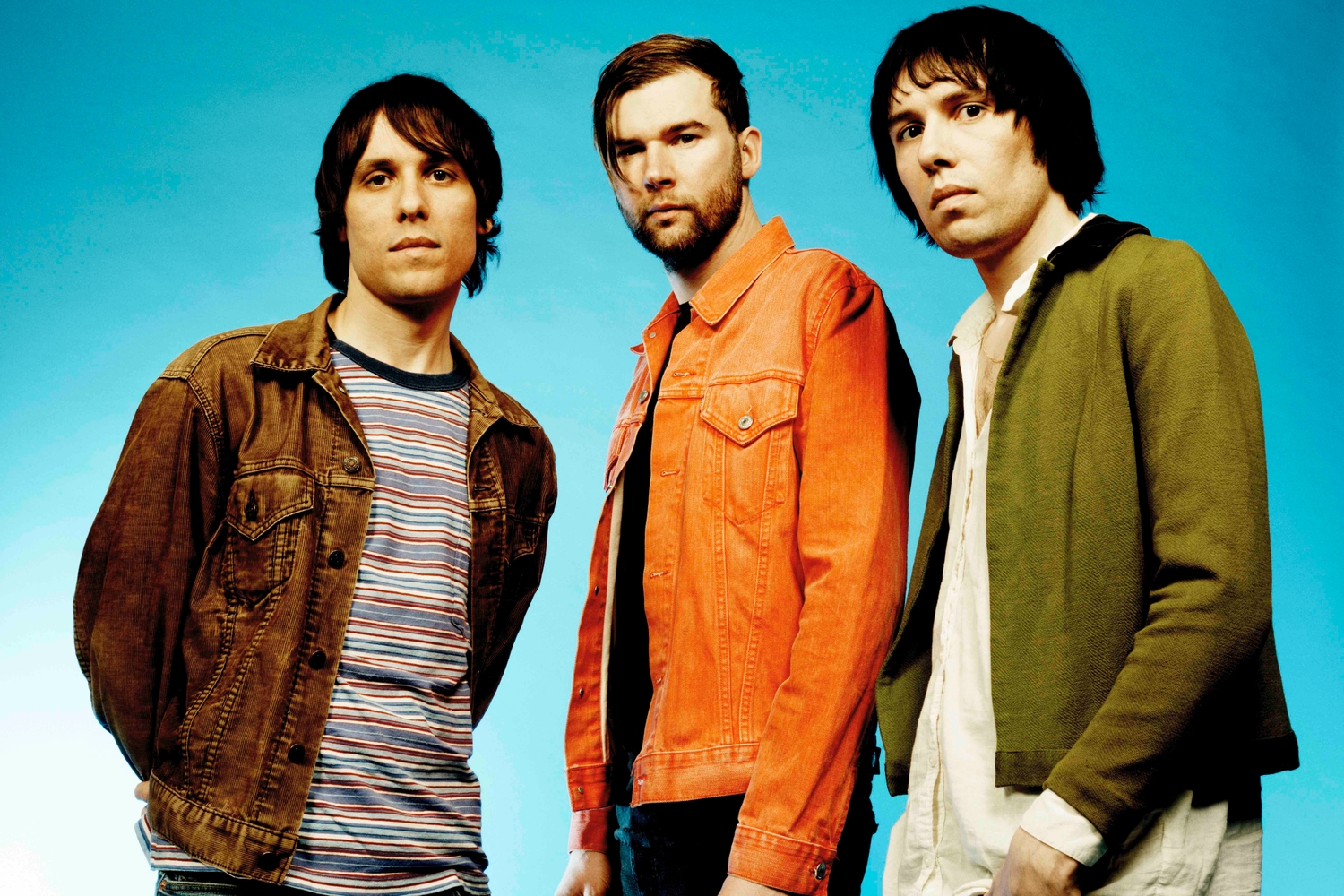
The Cribs share latest Sonic Blew Singles Club release
They're sharing 'The Day I Got Lost Again' and 'Opaline And Evergreen' today.
22nd October 2021, 12:00am

The Cribs reveal ‘Swinging At Shadows’ video
It's the first release of their ‘Sonic Blew Singles Club’.
13th September 2021, 12:00am
Featuring SOFT PLAY, Corinne Bailey Rae, 86TVs, English Teacher and more!
